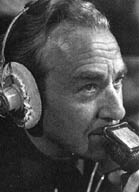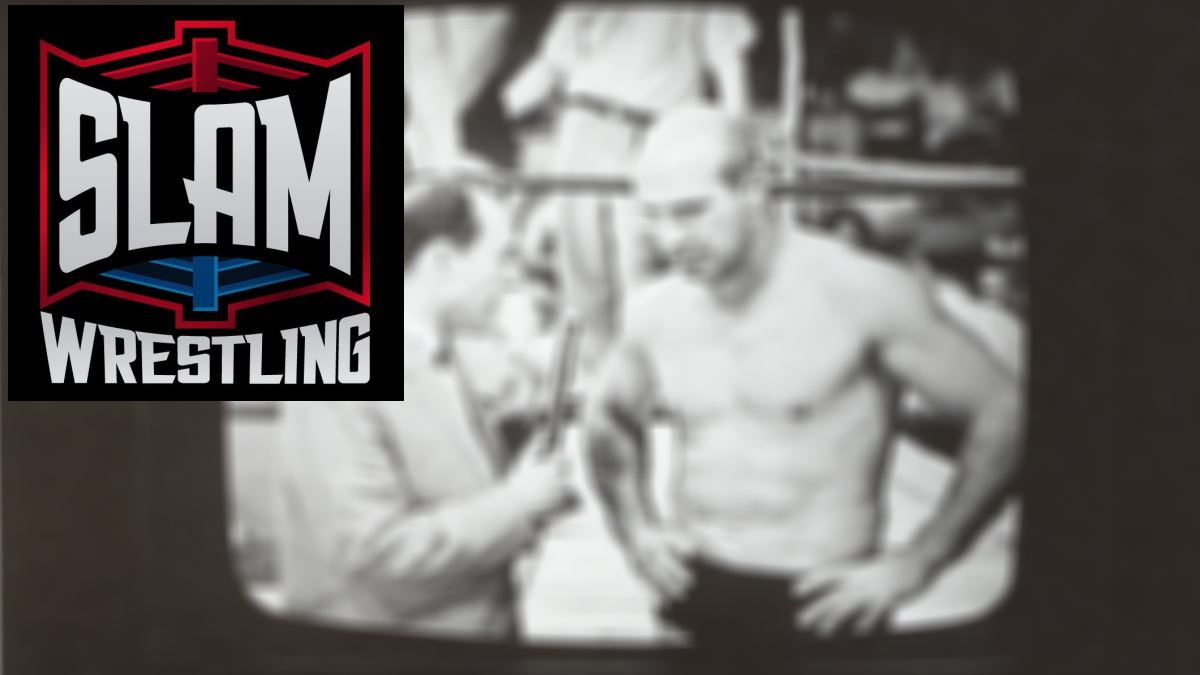“Greetings, grapple fans.” With one simple phrase, England’s Kent Walton welcomed wrestling fans tuning in on ITV on Saturday afternoons for 33 years. His death on Sunday at age 86 leaves a big void in British wrestling.

Kent Walton
At its peak, wrestling in England reached 12 million viewers, including the Queen,
Margaret Thatcher (who once asked Big Daddy for six signed photographs), and The Duke
of Edinburgh.
Called “instantly recognisable” by the London Telegraph, Walton died of cancer only three days after finally admitting to his family that he had the disease.
On the final ITV wrestling broadcast, Walton called Billy Two Rivers “the greatest Red Indian ring warrior of them all.” Two Rivers believes Walton’s appeal lay in his common touch, especially being on the commercial ITV network as opposed to the publicly-owned BBC. “In the stiff upper lip way of commentating, he was just a notch above getting personally involved in it,” Two Rivers told SLAM! Wrestling. “There was some emotion into it, which was strange to the English public. He’d get excited. ‘There he goes! And there’s a drop kick! Bang! One-two-three!’ Where the more sedate BBC would be, they didn’t really get emotionally involved in their coverage of sports, they were sort of monotone. He created the life to the commentary.”
In his book, The Wrestling, Simon Garfield talked to numerous British wrestlers about their profession. Walton shared the story of how he got involved in wrestling with Garfield:
“I was handed a message. It told me to telephone Mr Johnstone at once.
‘Hi Kent! What do you know about wrestling?’
‘Wrestling? Not a thing. Why?’
‘You’d better find out, boy. You’re on – Wednesday.’
Johnny Dale set up a whirlwind tour of the country, showing me six full tournaments in a lesser number of days, and arranged for me to meet Mike Marino in the ring.
Suddenly it was Wednesday 9 November 1955. The time was 9 pm. The place, West Ham Baths. As the wrestlers entered the ring a blond-bonced fella slipped quietyly into the vacant seat beside me.”
Also in The Wrestling, wrestler Mick McManus recalled Walton’s start. “He had a very good voice that lent itself to the wrestling scene, as opposed to someone who was an Oxford type of bod that frequented the television companies in those days. But the problem was that he’d never been to a wrestling match before he got the job. So I took him down to a gym with a few others and we had to run through some holds and throws to acquaint him with what went on, what constituted a fall or a submission.”
Walton was “very professional” according to Two Rivers. He grew into the role. “They let him react, but eventually he got what they call in the language, smart,” Two Rivers said. On many occasions, Walton would stand up for the men he worked with when nay-sayers bad-mouthed wrestling in the pub, hotly refuting allegations that the bouts were fixed.
Some of the obituaries peg Walton as coming from Canada, while the Telegraph said that he hailed from Cairo, Egypt. Regardless of his origin, he was born Kenneth Walton Beckett in 1917. He grew up in England and went to the Embassy School of Acting in London. When World War II started, he served in the Royal Air Force as a radio operator and front-gunner.
He acted on stage, and worked as a TV sports announcer, covering soccer and tennis. Besides hosting wrestling, he did commercial voice-over work, was a radio disc jockey, and hosted two pop music shows on TV as well, Cool For Cats and Discs A-Go-Go.
Wrestling was dropped by ITV in 1988, and Walton was the regular commentator for all 33 years. He signed off each program was his catch-phrase, “Have a good week. . .till next week.”
Walton is survived by his wife Lynn, 83, and one son, Lee.
